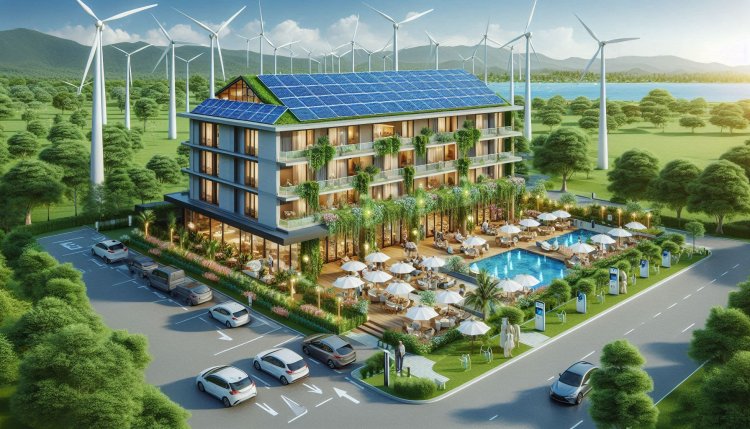Solar-Powered Transportation Solutions
Discover eco-friendly solar-powered transportation solutions to reduce carbon emissions and save on fuel costs. Explore sustainable mobility options today!

Solar-Powered Transportation Solutions
Solar power is becoming increasingly popular as a clean and sustainable source of energy for various applications, including transportation. With the advancement of solar technology and the need for reducing greenhouse gas emissions, solar-powered transportation solutions are gaining traction around the world. From solar-powered cars to buses and even planes, the possibilities for solar energy in transportation are diverse and promising.
Solar-Powered Cars
Solar-powered cars are vehicles that are partially or fully powered by solar energy. These cars are equipped with solar panels on their roofs or other parts of the vehicle to capture sunlight and convert it into electricity. The electricity generated from the solar panels can either be used to directly power the car or stored in a battery for later use.
One of the most notable examples of a solar-powered car is the Solar Impulse, a solar-powered aircraft that completed a round-the-world flight in 2016. The Solar Impulse demonstrated the potential of solar energy in aviation and inspired further research and development in solar-powered transportation.
Solar-Powered Buses
Solar-powered buses are another emerging trend in sustainable transportation. These buses are equipped with solar panels on their roofs to generate electricity to power their engines or onboard systems. Solar-powered buses can help reduce greenhouse gas emissions and reliance on fossil fuels in urban transportation systems.
Several cities around the world have already implemented solar-powered buses in their public transportation fleets. For example, the city of Adelaide in Australia has introduced solar-powered electric buses that are charged using solar energy from rooftop panels at the bus depot. This initiative has helped reduce emissions and operating costs for the city's public transportation system.
Solar-Powered Trains
Solar-powered trains are an innovative solution for reducing emissions in the railway industry. These trains use solar panels installed along railway tracks to generate electricity that can be used to power the trains or be fed back into the grid. Solar-powered trains can help reduce the carbon footprint of rail transport and make train travel more sustainable.
In 2016, the Byron Bay Railroad Company in Australia launched the world's first solar-powered train. The train is powered by a 6.5-kilowatt solar array installed on its roof and has a battery storage system to store excess energy. The solar-powered train runs on a heritage railway line and has become a popular tourist attraction in the region.
Solar-Powered Ferries
Solar-powered ferries are an environmentally friendly alternative to traditional diesel-powered ferries. These ferries are equipped with solar panels on their decks to harness solar energy and power their electric motors. Solar-powered ferries can reduce emissions and operating costs for ferry operators while providing a more sustainable mode of transportation across waterways.
One example of a solar-powered ferry is the "Solar Sailor" in Sydney, Australia. The ferry is equipped with a unique solar wing technology that allows it to harness solar and wind energy for propulsion. The Solar Sailor has demonstrated the feasibility of solar-powered ferries in urban water transport systems.
Solar-Powered Bicycles and Scooters
Solar-powered bicycles and scooters are gaining popularity as sustainable modes of transportation in urban areas. These vehicles are equipped with solar panels that charge their batteries while parked or in use. Solar-powered bicycles and scooters offer a clean and efficient way to commute short distances without relying on fossil fuels.
Various companies around the world are developing solar-powered bicycles and scooters for urban mobility. These vehicles are equipped with lightweight solar panels that can charge the batteries while the vehicles are parked or in motion. Solar-powered bicycles and scooters are ideal for short trips and last-mile connectivity in urban areas.
Challenges and Opportunities
While solar-powered transportation solutions offer numerous benefits, there are also challenges that need to be addressed for their widespread adoption. One of the main challenges is the high upfront costs of solar technology and infrastructure. However, as solar technology continues to advance and become more affordable, the costs of solar-powered transportation solutions are expected to decrease.
Another challenge is the limited range and efficiency of solar-powered vehicles compared to traditional vehicles. Improvements in battery technology and solar efficiency are needed to overcome this challenge and make solar-powered transportation more practical and competitive.
What's Your Reaction?

















